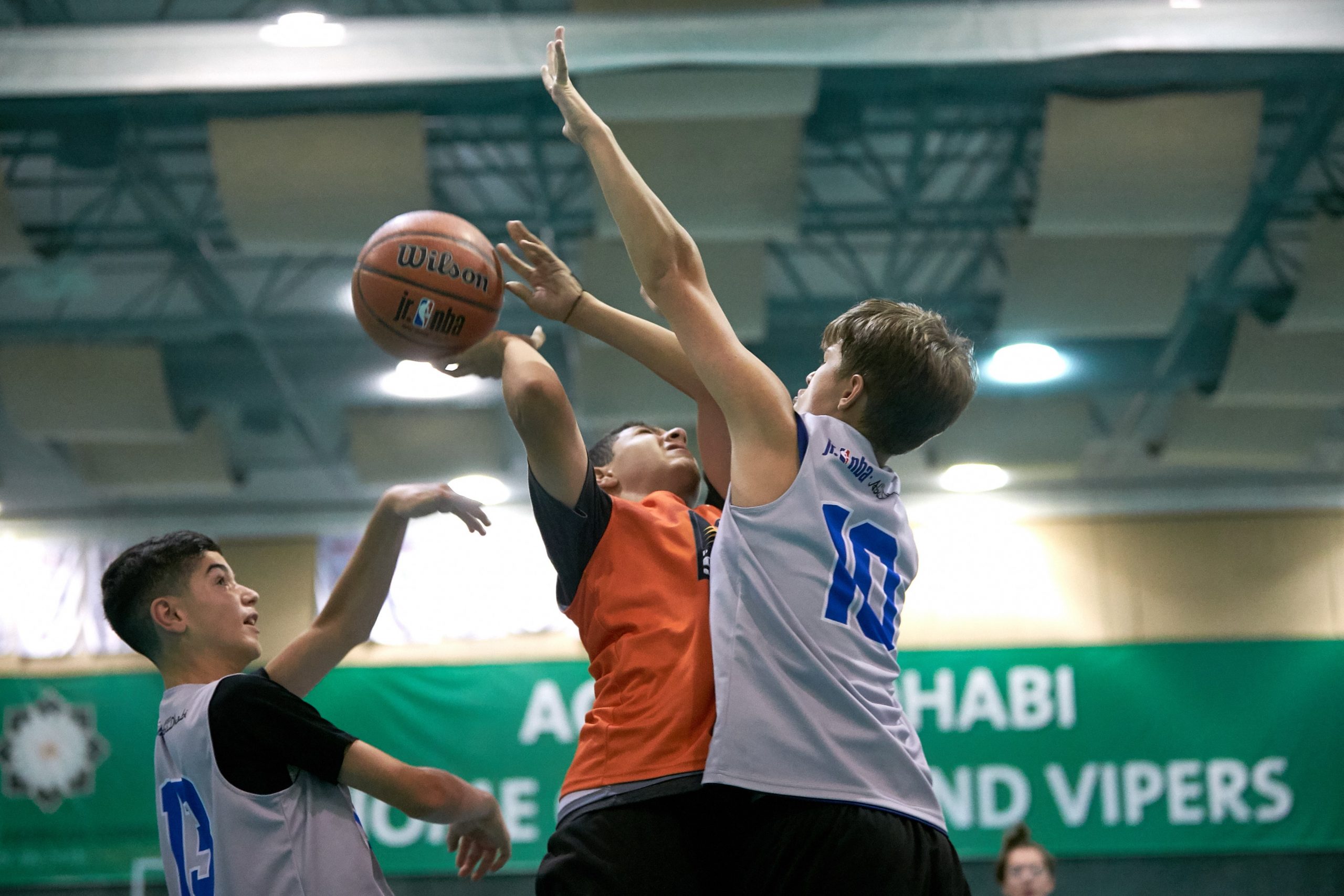Miranda Parchoma, a physical education teacher in Abu Dhabi, is a major advocate for balancing academics with individual and team sports for optimal student life.
“When it comes to team sports, there are so many invaluable skills learned that are very difficult to learn in any other scenario,” she explains.
Team sports give children a physical outlet as well as the chance to develop socially, mentally and emotionally. Student athletes who participate in team sports are proven to have better mental health and life skills that better prepare them to be successful in their future endeavors. Whether your kid chooses basketball, football, rugby or some other team sport, here are five ways participating can help their development.
Inspires dedication
Taking part in team sports can help in the development of your child’s self-esteem and confidence. The occasional high-five from a teammate or words of praise from a parent helps to build confidence and when a child’s positive contributions to a team are highlighted it also encourages them to trust their abilities and commit fully to their athletic pursuits.
Improves mental health
According to the Adolescent Brain Cognitive Development (ABCD) study, participating in team sports leads to better mental health for children as opposed to individual sports. For the purposes of this report, mental health is broadly defined as a state of well-being where a person realizes their own abilities, can cope with the common stresses of life, can work in a productive manner and is able to contribute to their community. The report is based on data obtained on 11,235 children aged nine to 13. Parents and guardians completed the reported on sports involvement and mental health using the Child Behavior Checklist.
Researchers looked for associations between mental health data and sports involvement and found that children playing team sports had fewer signs of anxiety, depression, social problems, withdrawal, and attention difficulties. Team sports was associated with 10 percent lower anxiety/depressed scores, 19 percent lower withdrawn/depressed scores, 17 percent lower social problems scores, 17 percent lower thought problems scores, and 12 percent lower attention problems scores. The study also found that kids who played only individual sports tended to have greater mental health difficulties than those who didn’t play any sports. Additionally, the findings suggest that participation in team sports may be a vehicle to support child and adolescent mental health, however additional research is needed to determine to what extent, and under what circumstances.
Encourages teamwork
Playing team sports teaches children how to be part of a team. Learning how to cooperate with others, identify their own strengths and respecting the contributions of others are all lifelong skills that young athletes can take with them into the workplace. Furthermore, being a part of a team fosters a sense of belonging that kids need as they grow and develop.
“Typically speaking, it’s easy to decipher which students have played team sports and which ones haven’t,” says Parchoma. “Interpersonal skills like teamwork and problem-solving are examples of strong skills learned in a sport setting from a young age. Athletes who participate in team sports are exposed to numerous opportunities to be leaders, decision-makers and hardworking individuals. They learn to adapt to different team dynamics and understand striving to succeed as an individual and also as a team, which is such valuable experiences”.
Develops social skills
Team sports also provide an outlet for kids to develop social skills such as communication and conflict resolution. In addition to communicating with teammates, children are expected to take direction and constructive criticism from their coach. These early experiences can teach children how to receive and unpack feedback as well as how to advocate for themselves in a respectful way. Development of good social skills extends to both the good times and the disappointment that playing competitive sports can sometimes bring.
Teaches sportsmanship
Winning and losing are inevitable parts of life that children should be prepared for and sportsmanship provides coping skills when the latter occurs. There’s no harm in being competitive. In fact, competitiveness is often a derivative of a child’s commitment and dedication to the sport but learning how to accept defeat can be challenging, especially for children. Team sports help them to develop a healthy respect for rules and outcomes beyond their control. Learning how to lose gracefully is equally as important as the physical paces that kids go through to develop as athletes.
Team sports are slowing ramping up post-Covid, and more sports are being offered, says Parchoma.
“In the past couple years, I think team sports have developed a lot, but there are still gaps in the programs. For example, volleyball was not accessible for many youth, and now there is more clubs offering it. At the end of the day, the more sports students can be exposed to the better.”
Basketball is also an emerging sport in the region. In 2022, the Jr NBA Abu Dhabi League was launched as part of a groundbreaking multiyear partnership between the NBA and DCT Abu Dhabi. The league saw 450 participating boys and girls from schools across the emirate battle it on the court making the inaugural season of Jr NBA Abu Dhabi a smashing success. The existence of programs like this are sure to pique interest and keep kids engaged in team sports for years to come.






